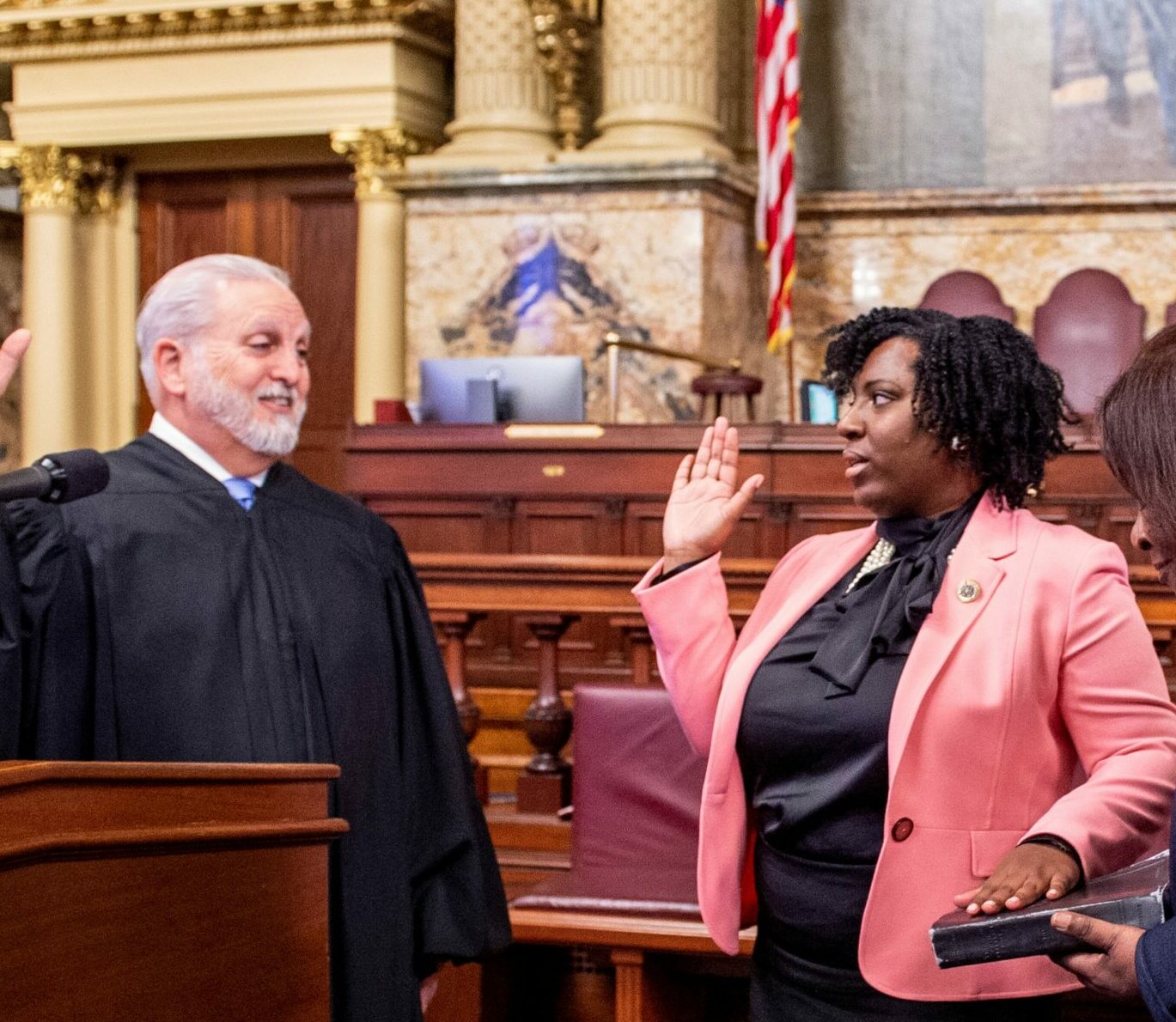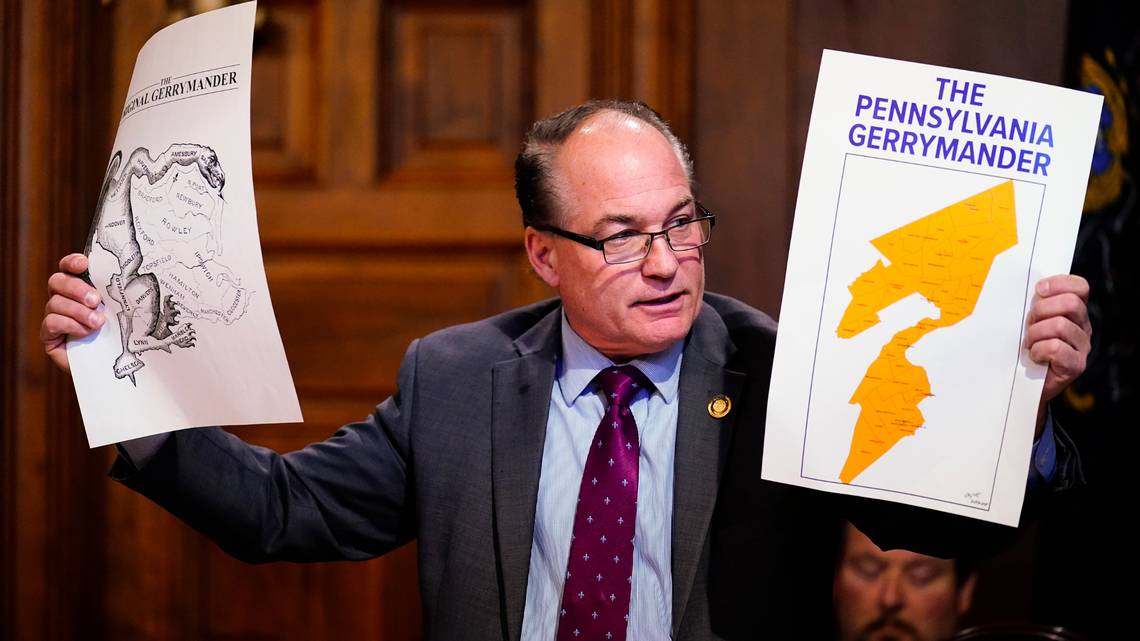PA House Dems Knew About Zabel but Did Nothing, GOP Women Say

When Bucks County Rep. Kristen Marcell first came to the House in Harrisburg, fellow members took her aside and gave her a warning.
Stay away from Mike Zabel.
“As a freshman female member, there were a number of female colleagues who shared with me that I should avoid being around [Zabel] when I first joined the House,” Marcell told DVJournal in a podcast interview Thursday. “I didn’t even know what he looked like at that point or any of the details. I found it very interesting that I was warned about him.”
Today, Marcell knows why. The Delaware County Democrat has been accused by multiple women of unwanted touching and inappropriate behavior.
For weeks, Pennsylvania politics has been roiled by reports of sexual harassment by an unidentified member of the House Democratic caucus. On Wednesday, Broad + Liberty broke the news it was Zabel (D-Drexel Hill), along with a new allegation of inappropriate behavior.
The problem first went public in January when SEIU lobbyist Andi Perez shared the story of a lawmaker she declined to identify who groped her.
“This lawmaker decided to caress my leg — I was wearing a skirt — all the while telling me he was impressed by my passion and knowledge of the issues we were discussing. … I moved away from him, hoping he would stop,“ Perez said at the time. “He did not.”
That lawmaker was Zabel, she later confirmed.
Broad + Liberty also reported the firsthand account of a female state rep who says a drunken Zabel propositioned her and later followed her to her car.
“He [Zabel] came up to me and he couldn’t stop telling me how great I looked. But then he was — he kept putting his arm around me and saying like, ‘Hey, we should get outta here. Like, do you wanna go upstairs with me?’”
On Thursday, GOP House leaders called on Democrats to join them in demanding Zabel’s resignation.
“In 2018, our colleagues on the other side of the aisle said, ‘Anyone accused of a credible violation like this should resign their position.’ Now that a member of their caucus has been credibly accused of multiple and serious incidents of sexual harassment, it would be our hope that Democrats would join us in calling on Rep. Zabel to resign,” GOP leaders said in a statement.
Among the signatories were GOP Caucus Leader Bryan Cutler (R-Lancaster), Caucus Secretary Martina White (R-Philadelphia) and Caucus Administrator Sheryl Delozier (R-Cumberland).
“Unfortunately, recent news reports and additional accusations have made it clear that generations of House Democratic leadership have known of Zabel’s actions but chose to ignore and cover up his behavior instead of taking action to protect the women in this capitol,” they added.
“Regardless of who you are or where you work, sexual harassment is never acceptable and cannot be tolerated,” Sen. Tracy Pennycuick (R-Bucks/Montgomery) said. “Better mechanisms must be put in place for victims to file complaints when these incidents occur so that their voices are heard, and ensure that perpetrators are brought to justice. There needs to be a full and thorough investigation and proper action must be taken.” Pennycuick had previously served in the House until being elected to the Senate in 2022.
In a podcast interview with DVJournal, White denounced the decision of Democratic leaders to remain silent about Zabel. She also warned the party’s continued embrace of the Drexel Hill Democrat would leave a stain on their reputation — particularly the new Speaker of the House, Joanna McClinton (D-Philadelphia/Delaware), who has portrayed herself as a champion of social justice.
White said that in January when the Perez story broke, she wrote then-Speaker Mark Rozzi and Democratic Caucus Leader McClinton “asking them to investigate, find out exactly who the member is, hold them accountable and call for their resignation. “Unfortunately, to this day they’ve never responded to that request.”
The reason Democrats haven’t acted, White said, is basic political math. They need every vote to hold their slender 102 to 100 majority.
“This is solely about maintaining power,” White said. “They wanted to make sure Rep. Zabel was on the floor to vote for leader McClinton to become Speaker of the House. It’s a complete disgrace.”
And, she added, “The fact McClinton got there on the back of a sexual harasser is just sad. It’s going to bear out as her legacy.”
Zabel has yet to respond to the allegations.
Asked if she feels safe in the House today, Marcell said no. And she was not the only woman who felt that way.
“At times I don’t feel safe in Harrisburg, knowing that for years, things may have been happening and there wasn’t an avenue for people to report them through the Ethics Committee,” Marcell said. “And from what I’ve heard from a number of females, both women [working in] government affairs as well as female colleagues, there’s really a need for change in Harrisburg.”
Please follow DVJournal on social media: Twitter@DVJournal or Facebook.com/DelawareValleyJournal







